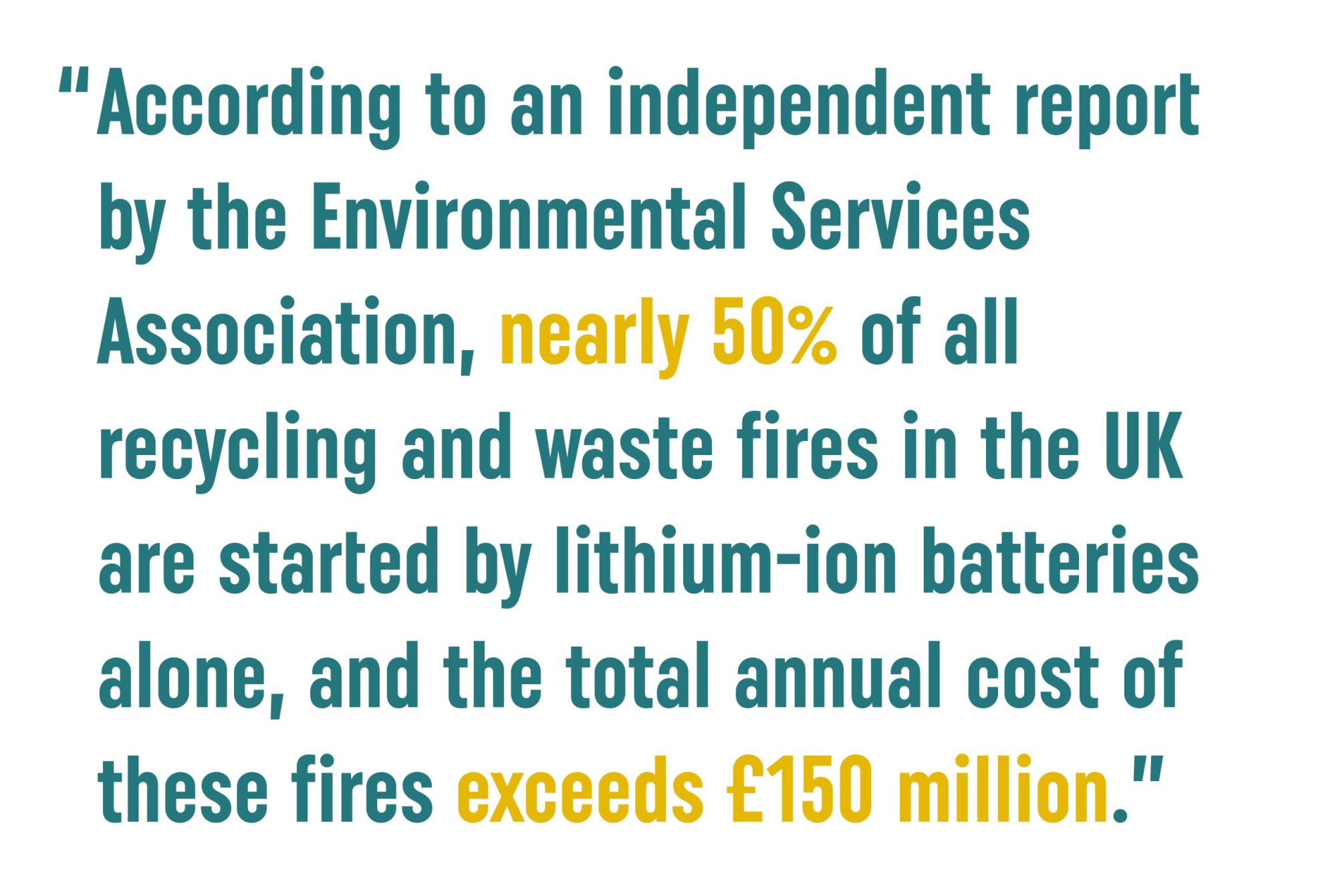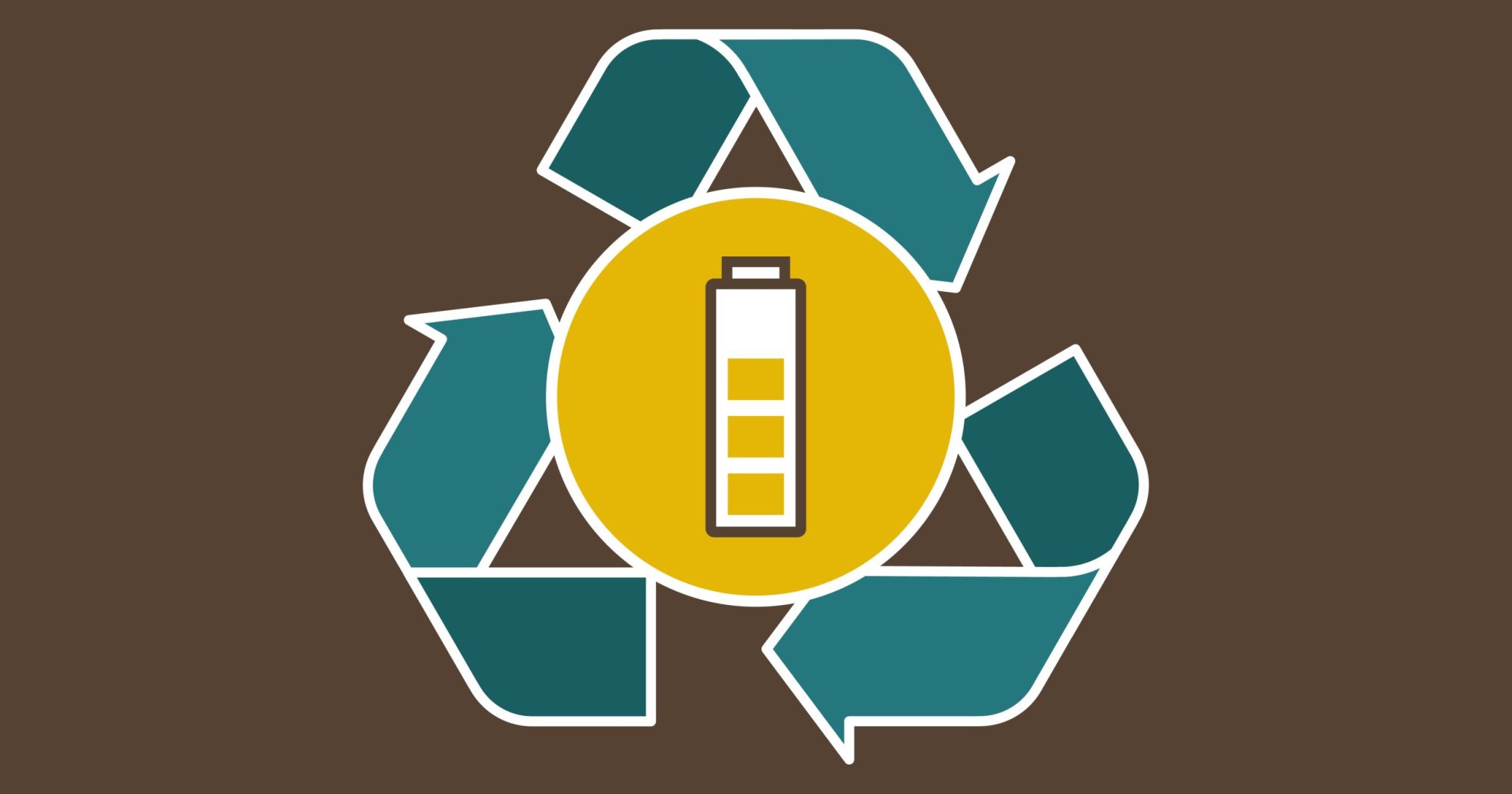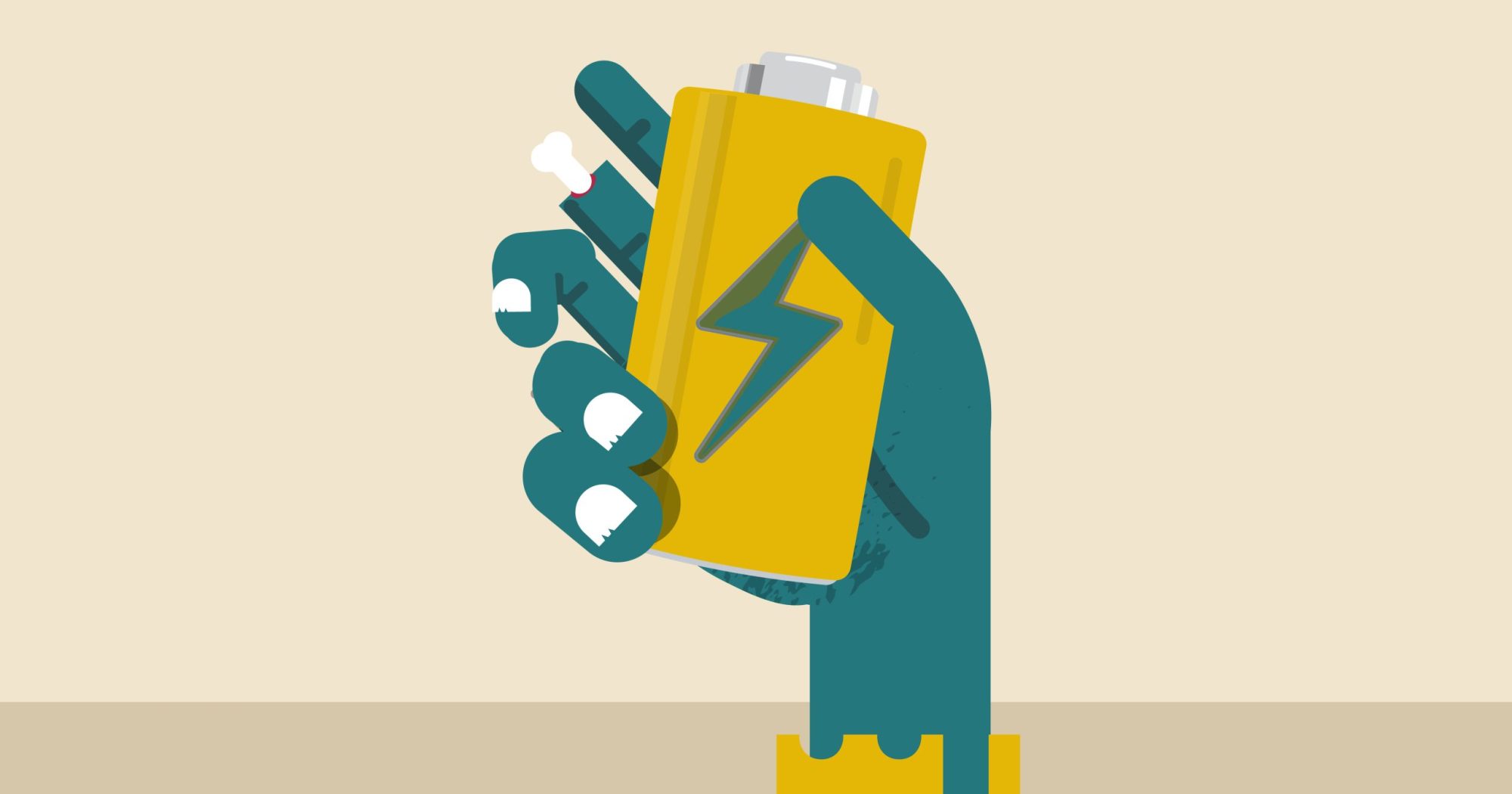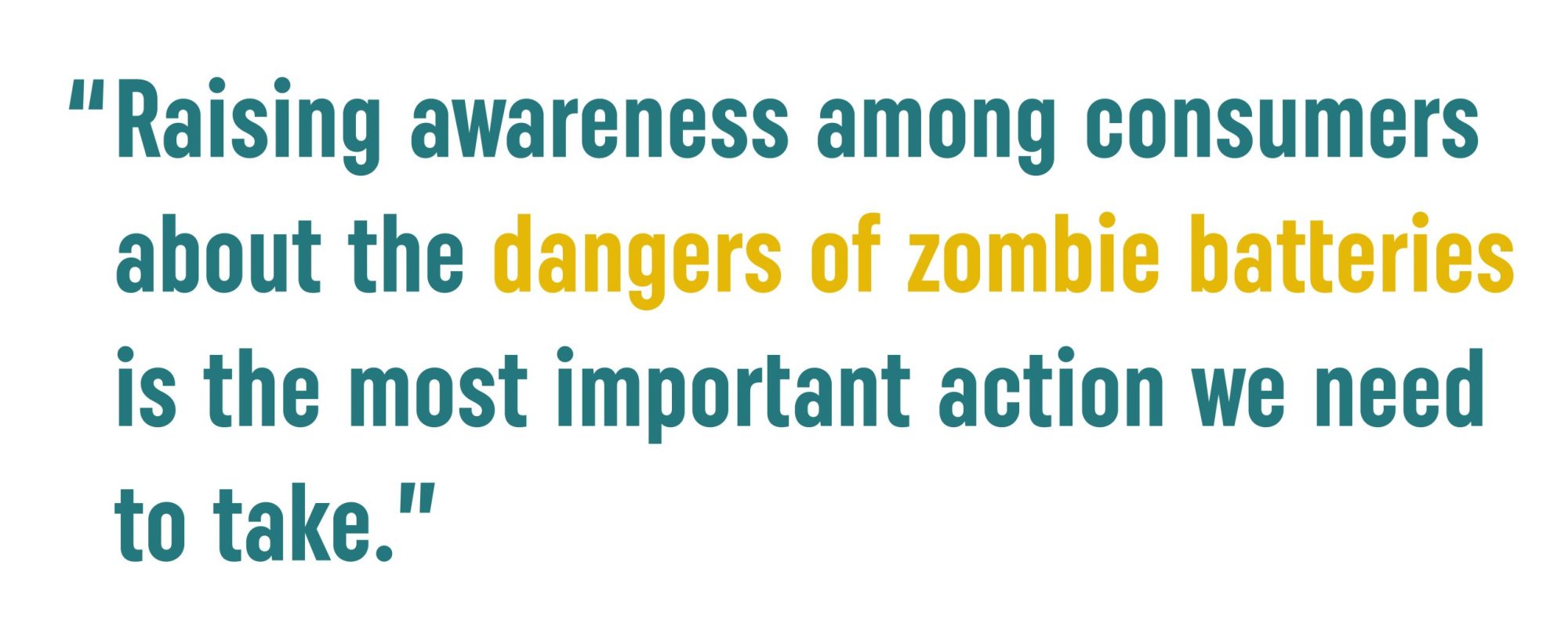
The Danger of Zombie Batteries
Batteries have become an indispensable part of our lives. From powering our smartphones to fuelling electric vehicles, batteries play a pivotal role in keeping our world connected and always on. However, despite their convenience, batteries have become one of the biggest environmental and recycling hazards.
It’s not the batteries themselves that are the problem, but more the way they behave when we think they’re dead, hence the name “zombie batteries”. These seemingly lifeless power sources possess the potential to wreak havoc on the environment, endanger the safety of the public and recycling professionals, and undermine our efforts to create a greener future.
According to an independent report by the Environmental Services Association, nearly 50% of all recycling and waste fires in the UK are started by lithium-ion batteries alone, at a cost of more than £150 million a year.

What are zombie batteries?
Zombie batteries refer to discarded batteries that are no longer functional but still hold some residual charge. These batteries often end up in the regular waste stream or recycling bins, where they can cause serious harm if not handled properly. The most common culprits are lithium-ion batteries, commonly found in smartphones, laptops, power tools and other sorts of portable electronics.

What are the hazards?
- Fire and explosions: The residual charge within zombie batteries can lead to seemingly random fires and explosions if subjected to physical stress. When these batteries come into contact with other metal objects or are crushed, pierced, or exposed to high temperatures, the residual energy can trigger a small explosion. This poses a severe risk to waste management workers, recycling facilities, and even households.
- Environmental pollution: Improper disposal of zombie batteries can have serious consequences for the environment too. When these batteries break down in landfills or incinerators, toxic chemicals such as heavy metals (lead, cadmium, mercury) and hazardous substances (lithium, cobalt) can leak into the soil and water, contaminating ecosystems and posing a threat to both wildlife and the public.
What can we do to combat the problem?

The rise in popularity of portable electronics and the increasing demand for rechargeable batteries have contributed to a surge in zombie batteries. Their compact size, coupled with a lack of awareness among consumers, means that they’re often disposed of accidentally or recycled incorrectly.
There are three main areas of focus which can help with the issue:
- Consumer education: raising awareness among consumers about the dangers of zombie batteries is the most important action we need to take. Through public campaigns, educational materials, and clear labelling on battery packaging, individuals can be better informed about proper disposal methods and the importance of recycling dead batteries. Providing accessible collection points in public spaces, shops and recycling facilities can also encourage responsible battery disposal.
- Enhanced battery design and labelling: battery manufacturers play a key role in combating the zombie battery threat. By designing batteries with clear labelling, warning symbols, and instructions for safe disposal, manufacturers can help consumers make the right choices. Manufacturers also have the power to introduce mechanisms that will shut down batteries for good once they hit a certain level of charge. They need to be making this shift in their production processes.
- Strengthening recycling infrastructure: investments in recycling
infrastructure are essential to ensure the safe disposal of dead batteries. Collaborative efforts between manufacturers, policy makers and the waste management industry can help establish recycling programs that prioritise the collection and treatment of zombie batteries, allowing us to combat the problem on a more fundamental level.

What can I do?
- Ensure you separate all dead batteries from devices before disposing of them.
- Recycle all your batteries correctly and dispose of them safely at a battery collection point.
- Set up a battery recycling point at your place of work for everyone to use for their work and personal batteries.
- Speak to our team at Brown Recycling to find out how we can help your business recycle any batteries safely and securely. As a leading waste management company based in Staffordshire, we are experts in this area plus we want to ensure we minimise the danger of zombie batteries pose to our recycling operatives.
As a leading waste management company based in Stoke-on-Trent, at Brown Recycling we’re well aware of the dangers of zombie batteries and are always looking for new ways to keep our recycling professionals safe. If you would like to discuss any of our recycling services with us or enquire about a free quote for your materials, all you have to do is get in touch.
This website uses cookies to enhance your browsing experience and deliver personalised ads. By clicking “Accept All Cookies”, you agree to the storing of cookies on your device to enhance site navigation, analyse site usage, and assist in our marketing efforts.



